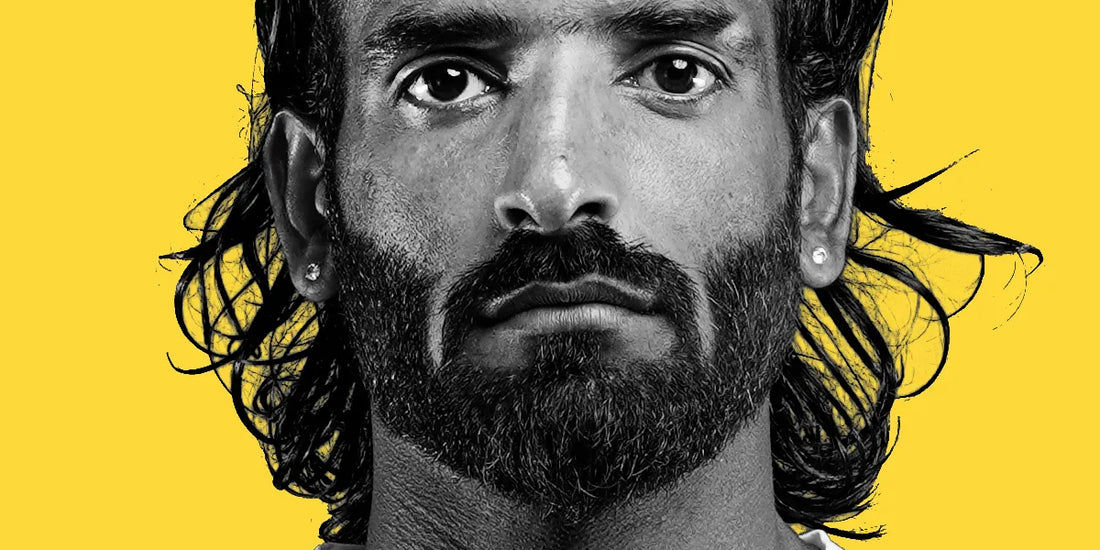
What If It Ends?
Share
As the moon reaches its peak over Kaharpur, a small village hidden in the heart of Punjab, a lone figure sits by the edge of a football field, deep in thought. The village, with its mere 15 houses, seems to hold its breath as this man, a warrior in spirit, contemplates a haunting question: What if it ends?
By day, he’s known as a professional footballer, a quiet leader who shuns the limelight yet commands respect with every move. His trophy cabinet rivals that of the best, but it’s his humility and strength that truly set him apart. Seated humbly by the corner of the field, he reflects on a lineage rich in courage — his grandfather a freedom fighter and World War veteran, his father a retired professional from the PSEB and a footballer.
His own journey is marked by grit and determination: traveling alone on packed trains (without a ticket) to trial at the famous Maidans of Kolkata, battling fever and exhaustion; cycling through villages before dawn, spurred on by sheer willpower despite the tales of ghosts haunting his path.
Under the solitary glow of the floodlight, his shadow stretches long, echoing the larger battle he faces. What challenge could rival his storied career? He’s captained top teams, scored winning goals before massive crowds (90,000 fans), and inspired Bollywood stars. Yet, his greatest fight lies far from the pitch.
In Punjab, where rivers once symbolized life, a new menace flows: drugs. This warrior’s battleground is not restricted just the football field now, but the very soul of his community. Each evening, as the sun sets, children from nearby villages flock to the Kaharpur football ground, a sanctuary nurtured by their devoted coach, friend, dancer, singer and brother. To them, he is more than a footballer; he is a beacon of hope. Or as they lovingly say, he’s their Paaji.
He sees their raw talent and dreams of a future where they break free from the white lines that seperate their lives from greatness. His commitment is unwavering. Coaching multiple games a day, tending to the injured, even asking his aging father to step in when duty calls him away — no stone left unturned.
He fights relentlessly, organizing tournaments, petitioning authorities, and connecting his young protégés with the best. His sole mission: to instil in them the belief that they can rise above, that greatness is their birthright and football is their way. Our warrior is a Punjabi you see and nothing below greatness cuts for him.
Unconcerned with the naysayers, as he’s always been. This man’s walked through fire, taken one for his teams and risen above his mistakes and temper. As we look back, it almost feels like he walks through fire at will and emerges tougher every time.
Fans may chant “Abra Ka Dabra Harmanjot Khabra,” but his true magic lies in dissolving the barriers that separate the youth from their potential. These barriers are often tiny in size and not more than a few centimetres long. But one has to look at the damage they’ve caused to know how big they really are.
Khabra repeatedly wonders if the war on drugs will ever be won, if the menace will ever end? But like his game on the pitch, he doesn’t wait for the answer. He just lunges into the problem statement. With faith and a dream as vast as the sky, he charges headfirst into the fray. One could watch any of his highlights to make more sense of the paragraph.
Men like him make us believe that it’s not a matter of how, but when this battle will be won.
In the quiet of Kaharpur, under the moon’s watchful eye, this warrior fights on, embodying hope and resilience. And as long as he stands, the dream lives on.